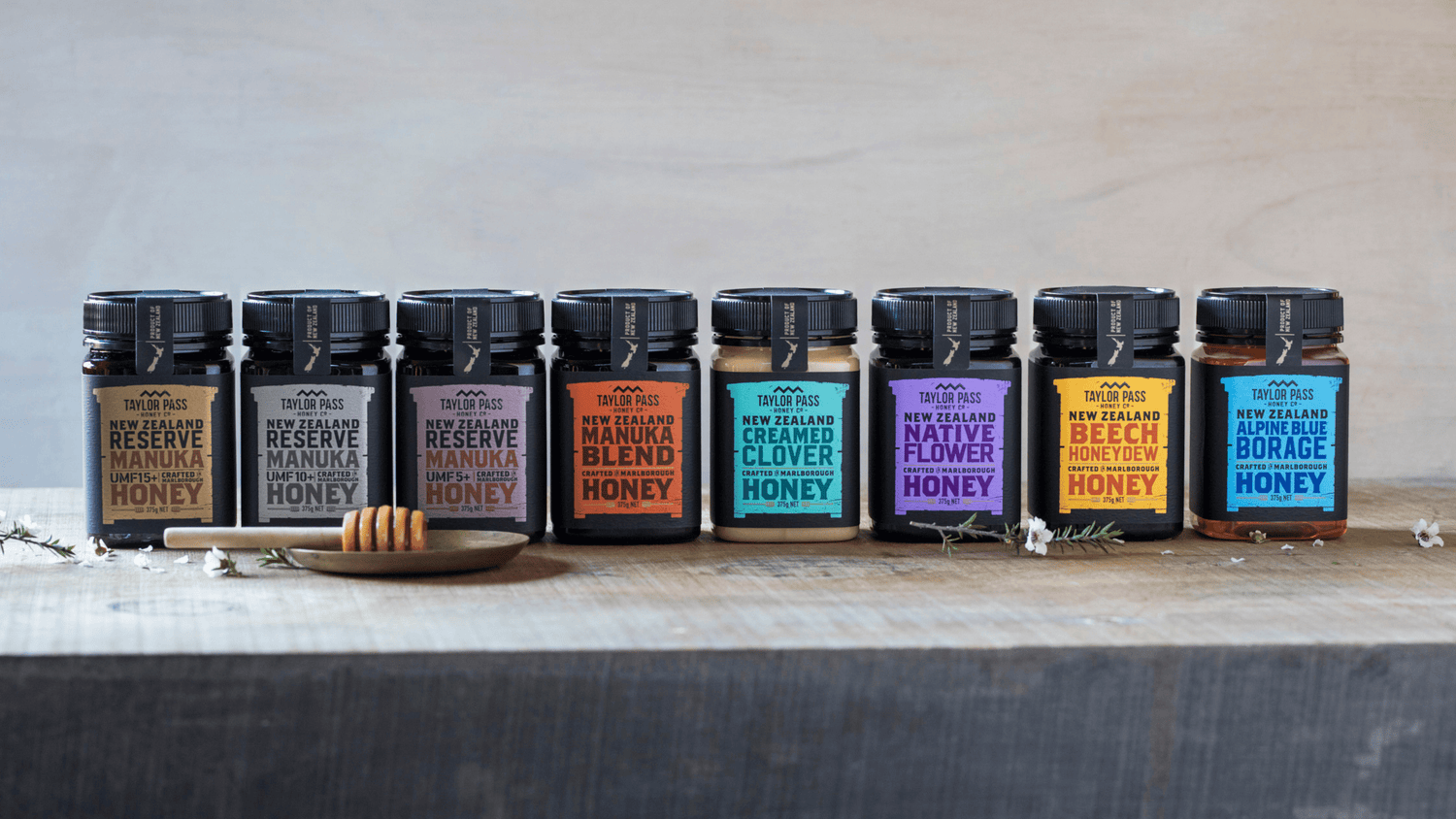Mānuka Honey claimed the super honey. Here’s why.
It’s no secret to honey lovers, that a delicious jar of Mānuka honey is a no-brainer when it comes to shopping for pantry staples. Whether we’re enjoying it as a spread on our toast, or adding as a health boost to ease a sore throat, Mānuka honey has many uses when it comes to the kitchen.
But what about outside of the kitchen, how else are people using their Mānuka honey?
With thanks to its antibacterial and anti-inflammatory properties, Mānuka honey has been historically famed for its healing properties to wounds and burns. One of the large antibacterial components of Mānuka honey is a compound called methylglyoxal (shortened; MGO). The higher the concentration of MGO, the stronger the antibacterial effect.

Research continues to emerge with supporting evidence that this natural product can be effective in treating a variety of skin conditions.
-
Using Mānuka Honey to Help Combat Acne
Research shows more than 80% of New Zealanders suffer from acne in between the ages of 11 and 30 years old. It can be attributed towards a wide variety of factors but common to be the reaction from hormone changes, stress, poor diet, health conditions and pollution.
Mānuka Beauty Benefits:
“It can balance your skin’s pH level and help slough away dead cell debris to keep your skin clean. Its anti-inflammatory effect can decrease local inflammation caused by acne. As an antibacterial, Mānuka honey leaves fewer bacteria to infect pores and cause acne. This honey can heal existing pimples, as well. The low pH speeds up the healing of acne.” – Healthline, 2022
But how?
There are a few ways you can use Mānuka honey for acne including using it as a face cleanser, mixing up your own mask, or simply applying a small amount directly to the area & leaving it to soak.
-
Using Mānuka Honey to Reduce Eczema Symptoms
Similar to Acne, Eczema (also known as Atopic Dermatitis) is also a common skin condition that affects many New Zealanders. It can come in many symptoms but commonly causing dry, itchy and inflamed skin.
From diet, to supplements, through to acupuncture and relaxation techniques, a recent article from Healthline shares a number of natural remedies that could be worth trying to help with reducing eczema symptoms. Included in this was also Mānuka Honey, with research showing characteristics such as anti-inflammatory, antioxidant and antimicrobial properties proving effective in helping with skin conditions.
“Another small study in 2017 looked at 14 participants with eczema lesions on both sides of their body. They applied manuka honey to one side every evening for 1 week. The other side was left untreated.
Researchers observed that eczema lesions improved following treatment with mānuka honey. They also observed less inflammation.”
If you’re thinking of giving it a go, here’s a few tips on how to apply the honey, from Healthline >
- In the evening, apply a thin layer of honey to the affected area using clean hands.
- Carefully cover the area with gauze or a bandage.
- Allow the dressing to stay in place overnight.
- In the morning, gently remove the dressing and clean the area.
Please note: this article has been written with support from research studies that are investigating honey as a potential treatment for skin conditions. It does not classify as medical advice or treatment.


